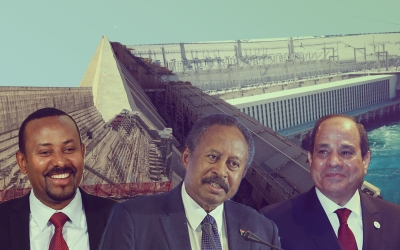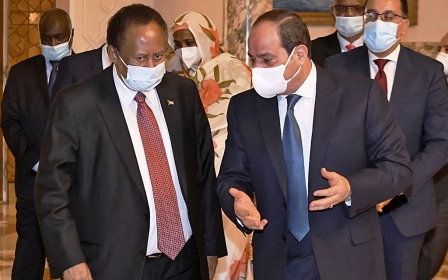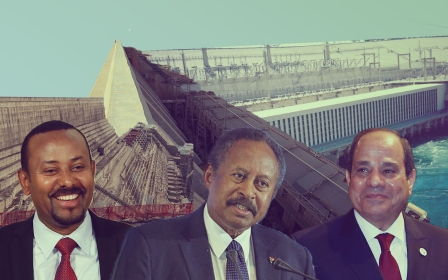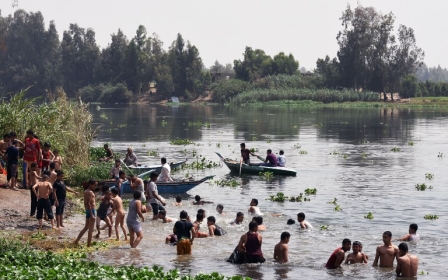Ethiopia begins generating electricity from controversial Nile dam
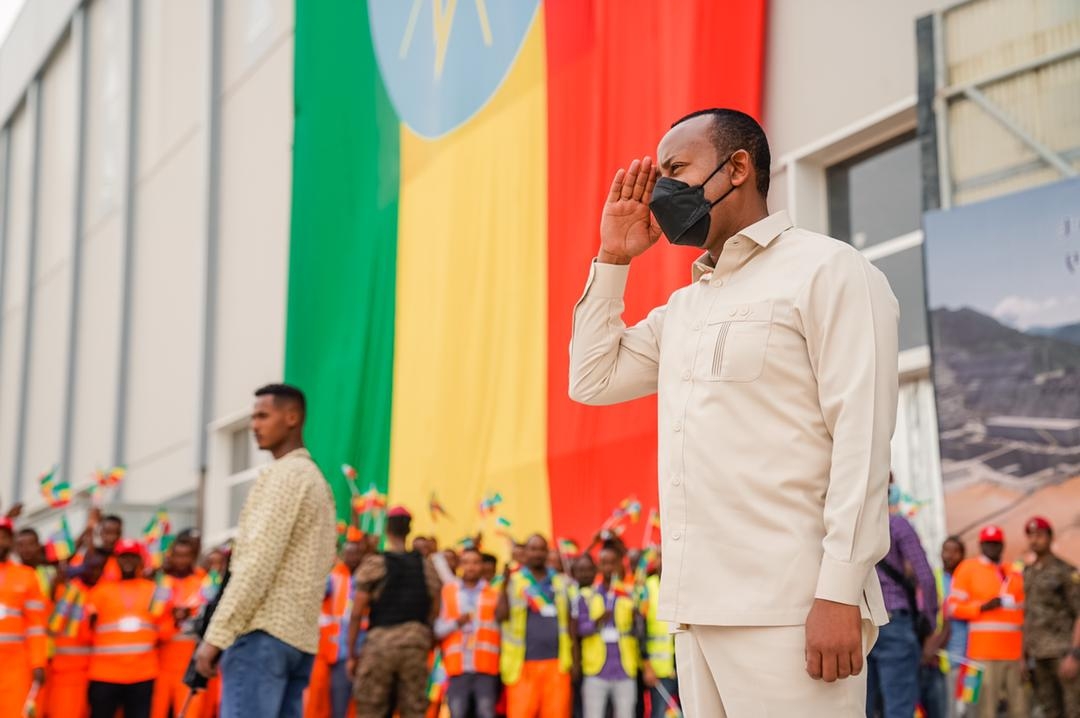
Ethiopia has announced that it began generating electricity from its controversial mega-dam on the Blue Nile on Sunday.
Prime Minister Abiy Ahmed confirmed the move on Twitter, describing the Grand Ethiopian Renaissance Dam's (GERD) launch as "the birth of a new era".
"This is a good news for our continent and the downstream countries with whom we aspire to work together," he wrote.
Images posted online showed Ahmed touring the facility, alongside other officials, and pressing buttons on a screen which officials say initiated production.
Ahmed dismissed concerns raised by Egypt and Sudan who fear the dam poses an existential threat because of its dependence on the Nile waters.
"As you can see this water will generate energy while flowing as it previously flowed to Sudan and Egypt, unlike the rumours that say the Ethiopian people and government are damming the water to starve Egypt and Sudan," he said as water rushed through the concrete colossus behind him.
"Ethiopia doesn’t have the desire to hurt anybody. Ethiopia’s only desire is to provide electricity to the mothers who have never seen a lightbulb, to alleviate the burdens of those who carry sticks on their backs to generate electricity, and to extricate them from the poverty we’re in currently."
No breakthrough
Egypt, Sudan, and Ethiopia have been negotiating for nearly a decade to reach an agreement on key outstanding issues related to the impact of the $4.6bn GERD on their water security.
Egypt's foreign ministry on Sunday accused Ethiopia of further violation of a preliminary deal signed between the three nations in 2015, prohibiting any of the parties from taking unilateral actions in the use of the river's water.
The first violations of the initial agreement related to the filling of the dam, the ministry said in a statement. There was no immediate comment from Sudan
Sudan hopes the project will regulate annual flooding but fears its own dams could be harmed without agreement on the GERD's operation.
Egypt depends on the Nile for about 97 percent of its irrigation and drinking water.
Both countries have been pushing Ethiopia for a binding deal over the filling and operation of the dam, but talks under the auspices of the African Union have failed to reach a breakthrough.
The GERD was initiated under former prime minister Meles Zenawi, the Tigrayan leader who ruled Ethiopia for more than two decades until his death in 2012.
Civil servants contributed one month's salary towards the project in the year of the project launch, and the government has since issued dam bonds targeting Ethiopians at home and abroad.
But officials on Sunday credited Ahmed with reviving the dam after what they claim was mismanagement delayed its progress.
Middle East Eye delivers independent and unrivalled coverage and analysis of the Middle East, North Africa and beyond. To learn more about republishing this content and the associated fees, please fill out this form. More about MEE can be found here.


